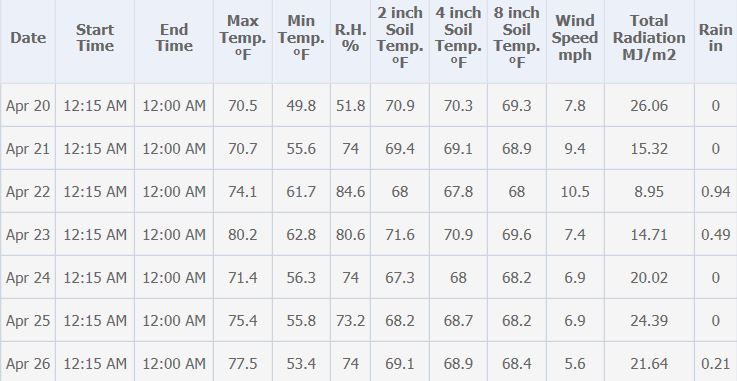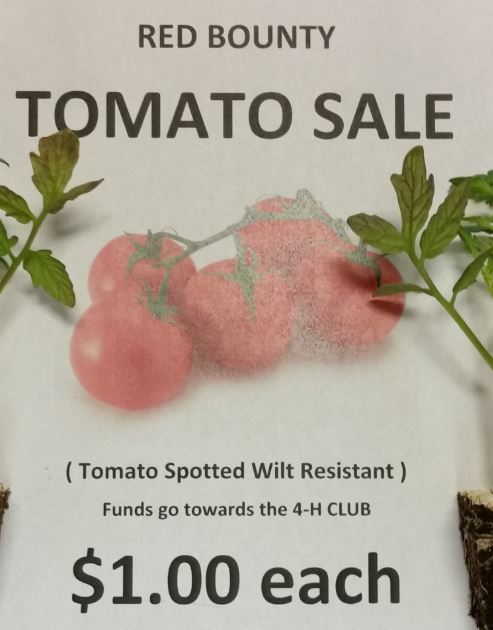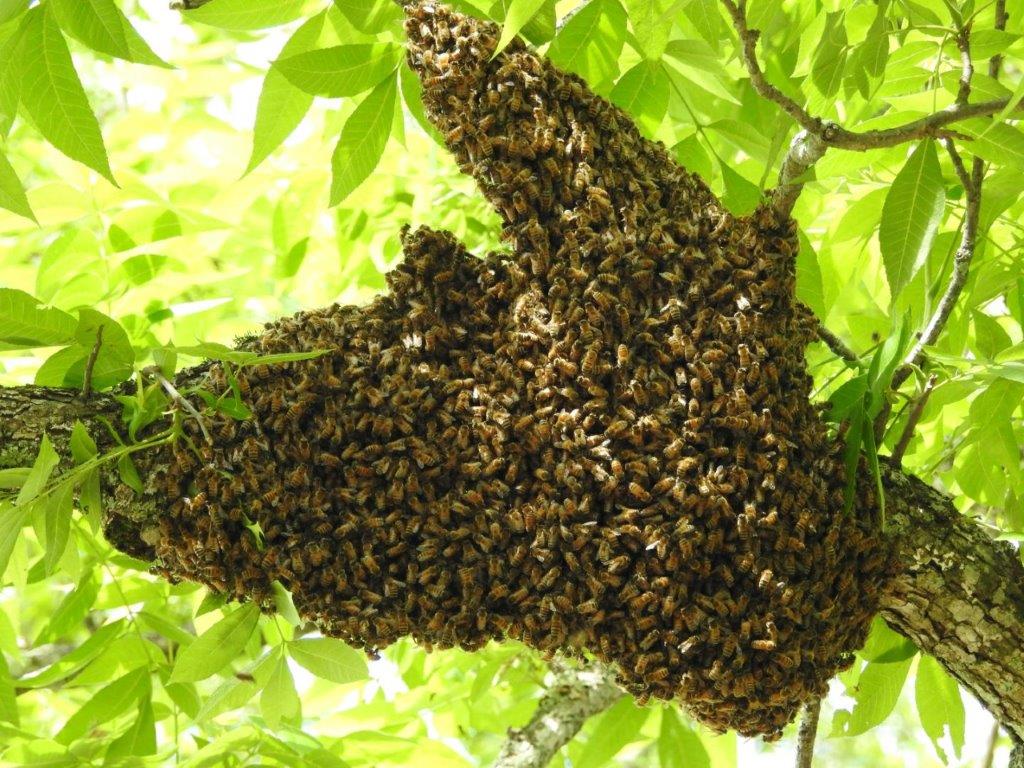Soil Temperatures and Planting Corn, Peanuts, Cotton, and Soybeans
Below are desired soil temps needed for corn, peanuts, cotton and soybean. These temperatures need to be an average among several days without threat of colder temperatures in the future.
Corn at 2″ soil depth should be 55 degrees minimum for 3 consecutive days.
Peanut at 4″ soil depth should be consistent 68 degrees minimum.
Cotton at 2″ soil depth should be consistent 65 degrees minimum.
Soybean at 2″ soil depth should be consistent 68 degrees minimum.
Below are Soil Temps from last 7 days at Spence Field in Moultrie:

Nickel Deficiency Prominent in Cold Soils – UGA Pecan Specialist Lenny Wells
With the cool temperatures we are experiencing this spring pecan trees are exhibiting some odd foliage characteristics. Normally at this time we have seen foliage reach nearly full expansion and female flowers are in the middle of pollination. But, with temps averaging about 4 degrees below normal, foliage development is behind. The cool soils associated with the delay in our warm up are also leading to the appearance of more mouse ear (nickel deficiency) symptoms on developing foliage. Pecans don’t need much nickel (Ni) but the cool soils limit available uptake and assimilation to those tissues in the tree which need it. The problem is easily corrected with foliar applications of Ni. For mature trees spray 1-1.5 pints/100 gallons. For young trees treated with a hand sprayer, mix 2-4 oz/25 gallons. Be careful not to over-saturate young trees when spraying with a hand sprayer as this can lead to foliage burn.

Peanut Thrips Monitoring 2018; April 18
Peanuts are being planted, and tobacco thrips are moving in Georgia. Trap captures increased significantly at four of our six monitoring locations last week. This means that peanuts emerging over the next couple of weeks will be at relatively high risk for infestation. Using an at-plant insecticide with proven efficacy will usually be sufficient to keep thrips injury low, but growers are still strongly encouraged to scout fields for thrips activity. Growers who are not using an at-plant insecticide should be prepared to make foliar applications (usually acephate) for thrips if they want to avoid injury. Remember that phorate (Thimet) in-furrow is the only insecticide that has been proven to reduce the risk of tomato spotted wilt disease in peanut. We are in the first two weeks of thrips dispersal, and we do not know how long flights will continue or how large populations will be. We will continue to post weekly updates of trapping data as the planting season progresses. Mark Abney – UGA Peanut Entomologist.
Fusarium Wilt in Watermelon
Cook County 4-H Fundraiser

Honey Bee Swarm

Alfalfa In the South Workshops – (some close to Cook County) -$15 Registration.
The UGA Forage Team is proud to announce the return of the popular Alfalfa in the South workshops. UGA Extension will host a series of one-day workshops entitled “Alfalfa in the South” on May 1 (Calhoun Co.), May 8 (Bacon Co.), May 9 (Tifton, GA), and May 10 (Irwin Co.). Each workshop will focus on the management and use of Alfalfa in the South, including how to successfully interseed alfalfa into bermudagrass. Click HERE for full agenda. Register on line HERE. If you prefer to register by speaking directly to someone in our office, call Cathy Felton at 706-310-3464.